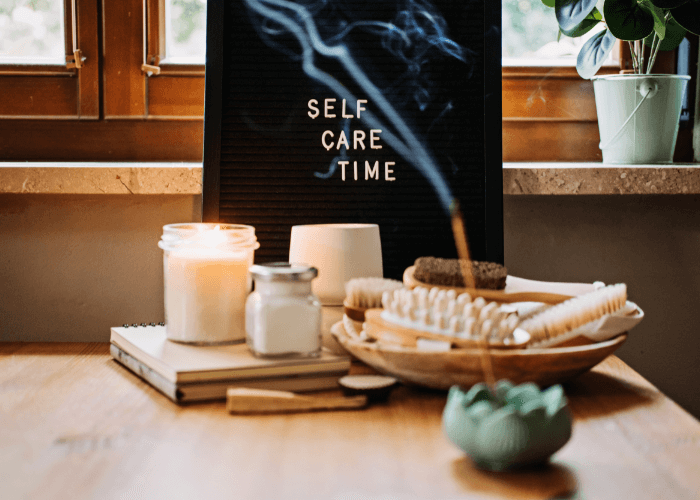How to Feel Better About Yourself?
Do you often battle the feeling that you’re not enough? Not productive enough in your workplace, not beautiful enough for a magazine front cover, not present enough for our family, not this enough, and not that enough also…
Well, you’re hardly alone in this.
One scroll through any chosen social media will show you tens and hundreds of seemingly perfect people living the seemingly perfect life. And no matter how hard you try to convince yourself that filters don’t make either beauty or happiness, you keep on comparing yourself to things that don’t actually exist.
At the end of the day, feeling good about yourself and treasuring what you see in the mirror is easier said than done.
The good news is that a shift of perspective can help you boost your self-confidence and your overall well-being. And another good news is that a shift of perspective is something you can successfully pursue and achieve as long as you take your time.
Are Being Happy With Yourself and Making Yourself Happy the Same Thing?
First and foremost, we must distinguish between these two entirely different concepts.
Being happy with yourself means recognizing and using your inner resources, valuing your own strengths, and building a positive self-image based on respect for the person you are. It results from building your self-esteem and practicing the unguilty pleasure of standing up for yourself. It’s the things you feel for yourself, the inner dialogue you have, and the will to stand your ground because you are good enough.
Making yourself happy, on the other hand, has more to do with your reaction toward external circumstances, situations, and challenges. It’s your response when things get tough and the strategy you build to preserve your well-being, even when the world seems to be moving against you. It’s your will and power to stay in control of your emotions, and it’s impossible to achieve without, first and foremost, respecting who you are.
Or else said – how to be happy with yourself and how to make yourself happy are not the same thing. Yet they are inseparably interconnected, and each of the two is impossible without the other.
You should first be happy with yourself in order to want – and know how – to make yourself feel better when things get rough.

How to Give Yourself a Boost and Raise Your Confidence?
As we tried to clarify in the paragraphs above, respecting and appreciating yourself is the ground you’ll be constructing your entire well-being on.
So, how do you achieve that if it doesn’t come naturally?
Like every mindset transformation, this one also begins with questioning your current point of view. If you feel you’re not enough and keep underestimating yourself, this probably originates from your past experiences. Sometimes, a deep do-it-alone shadow work will be enough to get you to the root of the problem. And sometimes, it won’t.
Talk-through therapy would be a nice place to begin if you have a long history of low self-liking and troubled confidence. Meanwhile, there are things you can do for yourself in order to improve your self-image and start altering your perception of yourself.
Below, you will find some helpful tips for your journey.
Stop Comparing Yourself to Others
Yes, that’s especially valid if you spend too much of your time on social media and watching TV shows. Some people spend their entire lives trying to look and behave like they’re living the dream. They are usually not living it, though.
It’s not about forgiving yourself that you’re not perfect. It’s about celebrating the fact that you’re real!
Practice Self-compassion Every Day
You’ve heard a lot about emotional intelligence, empathy, and tolerance toward others. But hey, how about you put the same effort into being equally benevolent to yourself?
Just imagine someone you really love is going through the stuff you’re going through right now. Imagine the genuine guidance you’d give them. And then take that same advice with no regrets.
Make a Feel-good List Every Day
No, it doesn’t need to be a glittery all-rainbows-and-unicorns list about the things that make life magical. It needs to be real, and it needs to be yours.
List the things you’re proud you’ve been through without losing your mind. List the trauma you’ve survived. List the people you love or the dreams you have. List poetry or movie quotes if that’s your thing.
It’s about you, remember?

Respect and Take Care of Your Body
That flesh prison of yours that you keep pushing through life – it’s actually you if you think about it. Body and mind do not function separately, and they are more interdependent than we realize in our day-to-day lives.
So, yes – eating a healthy diet is a form of self-love. Spending time in nature, breathing fresh air, and exercising is a form of feel-good therapy. You will sense and understand it in the very first week you turn it into a routine.
Draw and Defend Your Boundaries
Showing acts of kindness and supporting others will be an essential part of your self-appreciation journey. But living your life as a people-pleaser unable to say no won’t lead you to places you’d love to be.
Drawing boundaries is equally important in your personal, professional, and even family life. Stating your boundaries clearly and defending them in the long run, on the other hand, will help you receive the respect you deserve – first and foremost from yourself, and then from everyone else.
Keep On Exploring All the Possibilities
This list of self-appreciation tips can go on for a pretty long time, but some other vital stages of it might include:
- Use the power of mindfulness and visualization to set your priorities straight and start pursuing the right goals. Learning how to feel better about yourself is not an instant breakthrough but a long way you go every day.
- Surround yourself with people that appreciate and lift you up. You are allowed and advised to have your standards in interpersonal communication. You don’t have to settle for people who bring you down.
- Have your must-take time for yourself and do the things you love. If your friends and relatives don’t share your passions and interests, find the people who do. If you don’t find them – just do the things you love by yourself and enjoy the ride!
- Leave behind the things that harm your self-esteem. Life is too short to do a job you hate, settle for a partner that deliberately hurts your feelings, or even let a family member drag you down emotionally. It might seem counterintuitive at the beginning, but once you allow yourself a healthy dose of egoism, it will all finally make sense.
Finally, seeking professional counseling with a certified mental healthcare provider is always a good idea if you feel stuck or need guidance on your way. Feeling better about yourself can be a long ride, but the destination is absolutely worth it.

How to Make Yourself Feel Better in Challenging Times?
Self-respect and a friendly disposition toward yourself mean you’re halfway there, no matter how far you seem to be from a cloudless sky. So, when life inevitably hits, you will have to fight for your right to happiness without giving in to despair.
In order to feel well at all times, you first need to realize that you don’t have to feel well at all times. All your emotions are equally valid; feeling broken, teary, let down, or sad doesn’t make you weak. On the contrary, it makes you authentic – so before you let it go, you first need to let it come.
How to feel better after a breakup? Cry a lot, smash some dishes probably, then talk the night away with your bestie. A few days into that kind of emotional hurricane, remind yourself what’s the reason for breaking up. It’s probably valid, right? Tell yourself you deserve better, and let the better come!
How to feel better in a toxic working environment? Write a notice to quit today and start looking for a place that will nourish your talents instead of exploiting them for nothing. State your thoughts and feelings on the front door instead of repeating them forever under the shower. Then smile, leave, and start feeling better!
At the end of the day, life feels precisely how you make it feel. Realizing your total freedom to chase happiness is the first step towards fighting for yourself. Until you realize it’s not supposed to be a fight. It’s an embrace.













